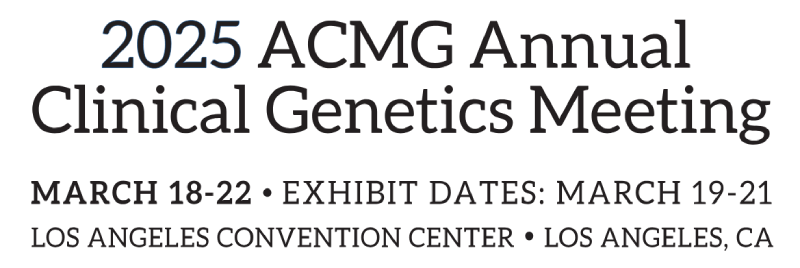Multidisciplinary Patient-Centered Care for Differences of Sex Development (DSD)
22 Mar 2025
Venue:
Los Angeles Convention Centre
Meeting Room:
502 AB
Clinical Genetics and Therapeutics
-
Accredited:
- Accredited
-
Primary Categories:
- Clinical- Pediatric
-
Secondary Categories:
- Clinical- Pediatric
Differences of Sex Development (DSD) is a group of conditions in which chromosomal, gonadal, or anatomic sex development is atypical, affecting 1% of the population. DSD has profound implications for fertility, cancer risk, gender, and quality of life throughout individuals' lives. The phenotypes are heterogeneous but overlapping, and dozens of genes have been identified in isolated and syndromic DSD, making this one of the most difficult diagnoses in medicine. The widespread use of cell-free fetal DNA screening has led to the identification of more prenatal cases of DSD, often resulting from discordant sex chromosome findings and ultrasound observations. This trend has intensified debates on clinical management, especially regarding sex assignment and the necessity and timing of genital or gonadal surgery. Psychosocial support for affected individuals and families is crucial. There are limited long-term outcome data on various practice approaches, leaving fundamental gaps in knowledge of DSD pathology and links between treatment options and desired outcomes.
This session will provide an overview of DSD clinical presentations from prenatal to adult stages, diagnostic approaches, and management strategies. We will identify current practice gaps and challenges, and emphasize the necessity of patient-centered, multidisciplinary team decision-making in DSD care. Additionally, we highlight the importance of knowledge-sharing and seeking standardized care to achieve optimal outcomes, as has been developed by the NIH-funded multicenter DSD Translational Research Network (DSD-TRN).
Advanced genetic testing has transformed DSD diagnostics, enabling precise molecular diagnosis. This not only informs personalized management and prognostic predictions but also advances genetic counseling and research. This session will review both common and rare genetic syndromes associated with DSD, emphasizing the pivotal role of advanced genetic technology in achieving accurate diagnoses.
Disturbances in gonadal development lead to infertility and increased risk of gonadal malignancy in some patients with DSD. This risk is heterogeneous and influenced by factors such as the specific DSD diagnosis, degree of maturation, testicular differentiation, and gonadal location. This session will examine the risk stratification of gonadal malignancy across different DSD diagnoses, gonadal surveillance tailored to the individual's sex of rearing and provide an overview on fertility preservation.
Caring for patients with DSD entails navigating complex psychosocial, ethical, and cultural considerations pertaining to gender identity, sex of rearing, autonomy, and long-term care options with cultural sensitivity. This session will delve into these nuanced issues, equipping attendees with the knowledge and skills necessary to identify effectively the psychosocial aspects of care, and emphasize the importance of peer support and patient advocacy in DSD care.
This session will provide an overview of DSD clinical presentations from prenatal to adult stages, diagnostic approaches, and management strategies. We will identify current practice gaps and challenges, and emphasize the necessity of patient-centered, multidisciplinary team decision-making in DSD care. Additionally, we highlight the importance of knowledge-sharing and seeking standardized care to achieve optimal outcomes, as has been developed by the NIH-funded multicenter DSD Translational Research Network (DSD-TRN).
Advanced genetic testing has transformed DSD diagnostics, enabling precise molecular diagnosis. This not only informs personalized management and prognostic predictions but also advances genetic counseling and research. This session will review both common and rare genetic syndromes associated with DSD, emphasizing the pivotal role of advanced genetic technology in achieving accurate diagnoses.
Disturbances in gonadal development lead to infertility and increased risk of gonadal malignancy in some patients with DSD. This risk is heterogeneous and influenced by factors such as the specific DSD diagnosis, degree of maturation, testicular differentiation, and gonadal location. This session will examine the risk stratification of gonadal malignancy across different DSD diagnoses, gonadal surveillance tailored to the individual's sex of rearing and provide an overview on fertility preservation.
Caring for patients with DSD entails navigating complex psychosocial, ethical, and cultural considerations pertaining to gender identity, sex of rearing, autonomy, and long-term care options with cultural sensitivity. This session will delve into these nuanced issues, equipping attendees with the knowledge and skills necessary to identify effectively the psychosocial aspects of care, and emphasize the importance of peer support and patient advocacy in DSD care.
Learning Objectives
- Gain familiarity with the evaluation process and common practice challenges in caring for patients with DSD
- Identify DSD as a component of presentations associated with various genetic syndromes
- Demonstrate the critical role of genetic advances in diagnosing, managing, and counseling individuals with DSD
- Describe the pathogenesis and stratification of malignancy risk in different types of DSD
- Review the intricate psychosocial, ethical, and cultural factors in providing care for individuals with DSD
- Describe the importance of peer support and patient advocacy in the care of individuals and families with DSD
Agenda
-
Welcome and Introduction8:00 AM – 8:05 AM
-
 Overview of DSD Diagnosis and Management: Current Practice Challenges8:05 AM – 8:20 AM
Overview of DSD Diagnosis and Management: Current Practice Challenges8:05 AM – 8:20 AM -
 Unraveling Complexities: cfDNA Screening Discordance for Sex Chromosomes and Genetic Syndrome in DSD Clinics8:20 AM – 8:35 AM
Unraveling Complexities: cfDNA Screening Discordance for Sex Chromosomes and Genetic Syndrome in DSD Clinics8:20 AM – 8:35 AM -
 Emerging Technology for Identification of Molecular Etiology in DSD8:35 AM – 8:50 AM
Emerging Technology for Identification of Molecular Etiology in DSD8:35 AM – 8:50 AM -
 Gonadal Health and Fertility Preservation in Patients with DSD8:50 AM – 9:05 AM
Gonadal Health and Fertility Preservation in Patients with DSD8:50 AM – 9:05 AM -
 Importance of Psychosocial Support, Community Engagement and Peer Support for Families with DSD9:05 AM – 9:20 AM
Importance of Psychosocial Support, Community Engagement and Peer Support for Families with DSD9:05 AM – 9:20 AM -
Panel DiscussionPanel Discussion and Q&A9:20 AM – 9:30 AM
-





)
)
)
)
)
)
)
)
)
)
)
)
)
)
)
)
)
)
)
)